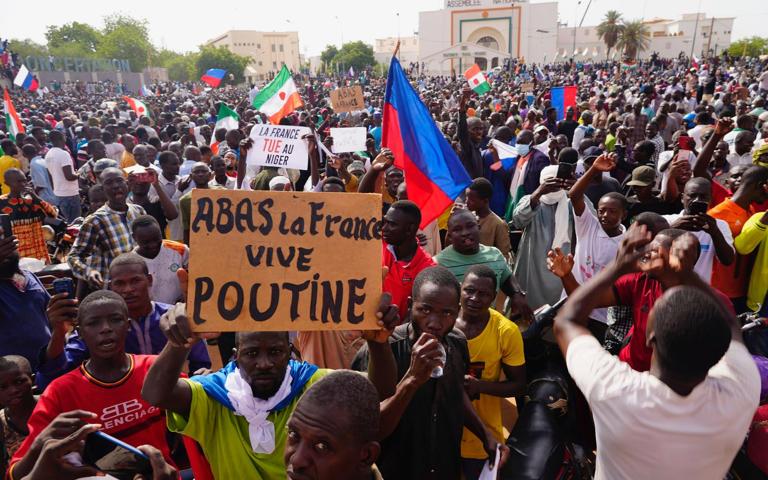
The crisis in West Africa could bring terrorism back to Europe’s streets
The military coup in Niger has forced a withdrawing West to once again take a long hard look at its policies in the region.
While the former colonial power, France, has long maintained cordial if at times fractious political relations with its former colonies, Pairs has until recently kept a firm military footprint across the vast region. So too have Britain, with former coastal colonies and a military deployment to Mali as part of the UN peacekeeping mission, and Washington – which conducts military operations across the Sahel as part of its wider counter-terrorism agenda.
In the last two years, these western deployments have been scaled back, often due to deteriorating bilateral political relations as the collective West began to spend more and more diplomatic capital addressing the multifaceted threats posed by Russia to Europe, and by China to the Indo-Pacific.
As a result of this changing of global geopolitical realities, many regions which have traditionally been a focus of the West have seen a stagnation of national political interest, deteriorating bilateral relations and, as a result, immense power vacuums in the wake of western withdrawal.
This new reality has been demonstrably brought into contrast by the recent negotiations between long-term systemic rivals Saudi Arabia and Iran, achieved only by the diplomatic investment of a neo-mercantilist Beijing. After immense American political and military expenditure, in addition to British, it is now to China that the Middle East turns for diplomatic and security solutions.
Like the Middle East, the African Sahel – long a region of deep insecurity and instability – has begun to slowly pivot away from traditional sources of diplomatic and military support, and towards Russia and its Wagner criminal forces.
Plagued by frequent military coups, political upheaval, famines, and border clashes, this region is no stranger to outside interventions. The decade-long UN peacekeeping mission in Mali has now been ended by the military junta which seized power two years ago. Paris was ordered to leave the country before the UN’s expulsion, ending its nine year counter-terrorism operation. It was Wagner which replaced France, Britain, and the UN peacekeepers in Mali.
The same fate can now be expected for Niger, the world’s most impoverished country, as protesters attacked the French embassy in the capital of Niamey over the weekend, replacing the French flag with Russia’s.
At a time of post-Covid economic strife, should the West expend political and diplomatic capital on developments in Niger? The spiralling events matter to the UK for several important reasons.
First, the security implications are profound. The resulting power vacuum of a politically indecisive and diplomatically impotent military junta will create chaos, panic, and instability in an already extremely impoverished and vulnerable country. This tinderbox situation will doubtless be exploited by the many Islamist terrorist organisations operating across Niger – including Al Qaeda in the Islamic Maghreb and Islamic State in the Greater Sahara. Both maintain active networks targeting western and British interests.
Second, the migration implications. Criminal and terrorist networks routinely use established trafficking routes across Niger and the region, exploiting chaos and instability to smuggle vulnerable people and possibly aspiring jihadis straight on to Europe’s shores across just a short hop across the Mediterranean. Britain cannot afford both the economic and security implications for another country plagued by extremism in this region to fall into disarray.
The third, and perhaps most short-term, implication is the immense leverage that Western disinterest in regions like the Sahel, and countries like Niger in particular, hands to Russia and China.
Putin has pulled off a charm offensive across some African nations. As he starves them of Ukrainian grain supplies with one hand, he gives back with the other by offering the support of Wagner forces. And China is poised to exploit lucrative trade deals for precious minerals and resources with these countries.
The time for Western inaction in failing and vulnerable countries like Niger is past. That does not mean military interventions are necessarily always required, but London, Washington, Paris, and even Brussels must remember that as a collective force of diplomatic, political, trade and, perhaps, military force, is being chronically underused across crucial regions. We must not allow nations like Niger to become vassal states to Putin and Beijing.
Source: msn





